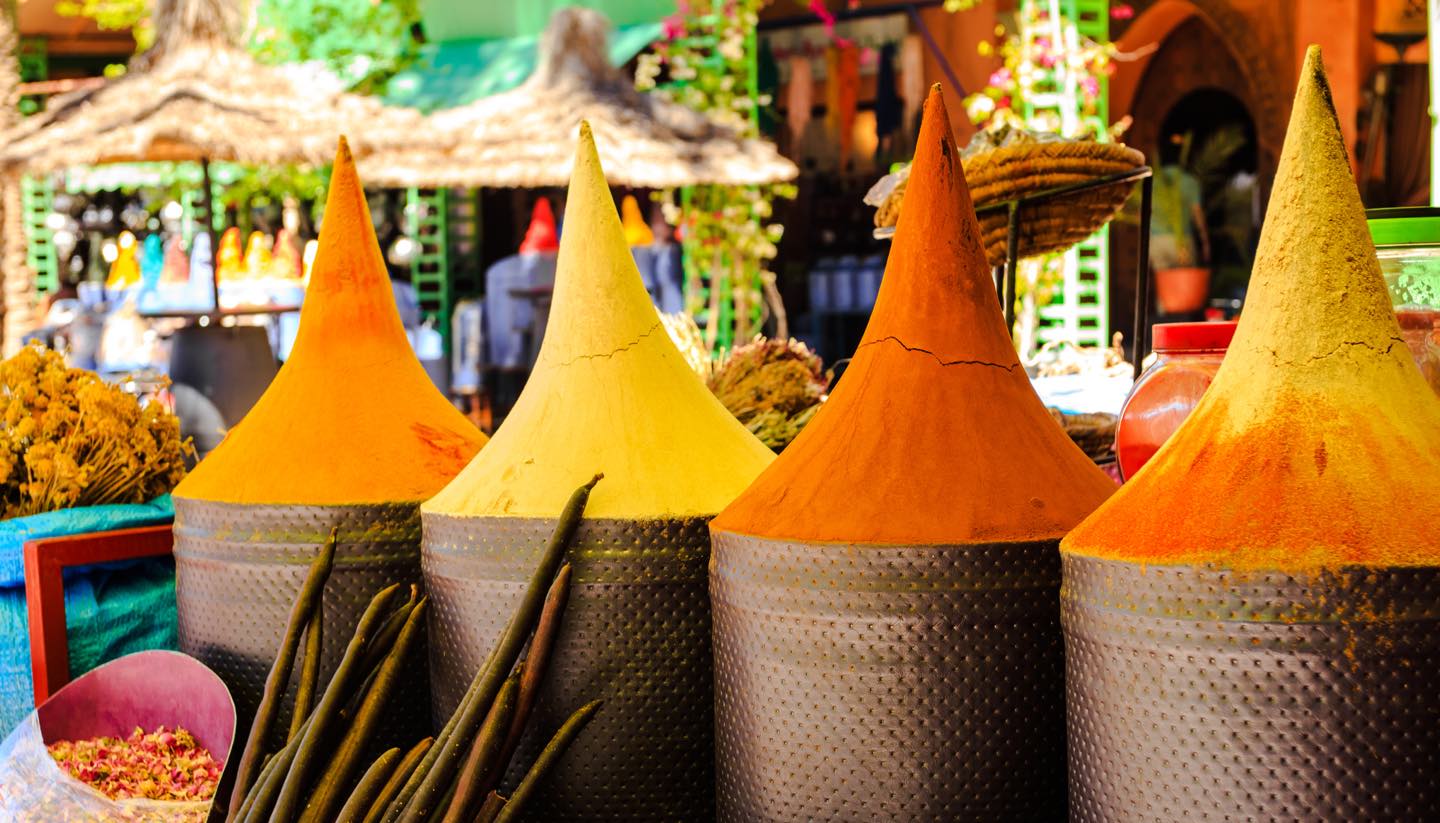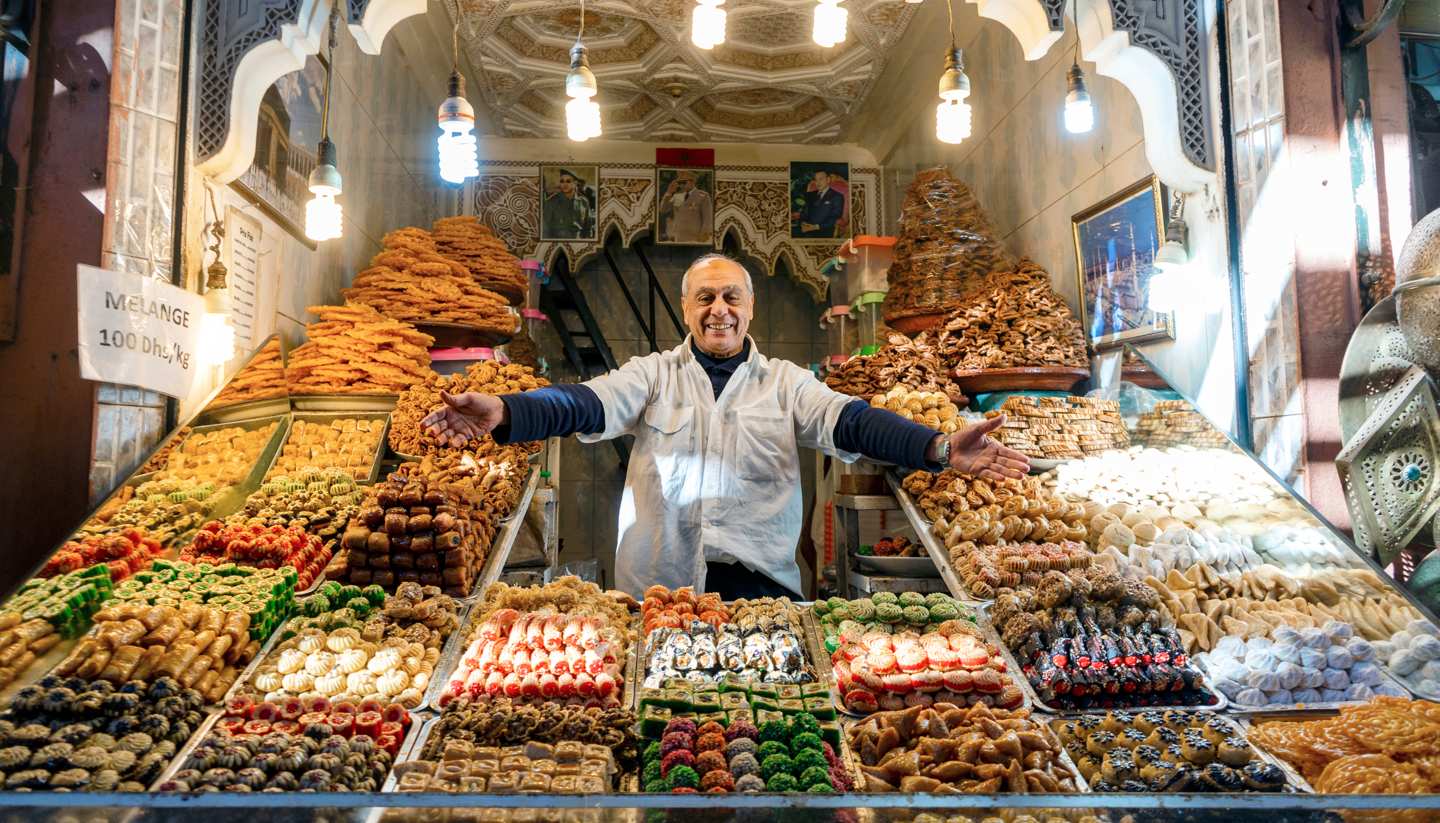Marrakech History
Founded in 1062, Marrakech served as the capital of Morocco under the Almoravid and Almohad dynasties. At its height, the Berber empire Almohad Caliphate controlled much of northern Africa and southern Spain, which in turn gave rise to a unique blend of cultures and distinctive Moorish architecture with interweaving arches, central courtyards, and attractive tile work among the main elements.
In subsequent centuries, Marrakech continued to grow under different leaders who also added various grand buildings to mark their reigns. Some examples include the 16th-century Saadian Tombs, the 18th-century Dar el Bacha Palace, and the 19th-century Bahia Palace.
In the early 20th century, Marrakech was captured by the French colonial army which installed their key ally T'hami El Glaoui as the Pasha of Marrakech, a post he held for 44 years until 1956. On 2 March 1956, Morocco gained its independence from France and Sultan Sidi Mohammed ben Yusef was restored as Mohammed V.
Marrakech has long fascinated European tourists. Winston Churchill frequented Marrakech in the 1930s and 40s, calling it "the Paris of the Sahara". In the 50s and 60s, the city became an escapism hub for hippies, surrealists, and pop culture giants such as Alfred Hitchcock, The Beatles, The Rolling Stones and Yves Saint Laurent – the latter restored and turned Jardin Majorelle into a living work of art and one of the must-see sights in Marrakech today.
Did you know?
• It is illegal to cut the palm trees dotted across the landscape.
• The souks in Marrakech are vast and varied, with an estimated 30,000 craftsmen working in the area between Jemaa el Fna and Medersa Ben Youssef.



